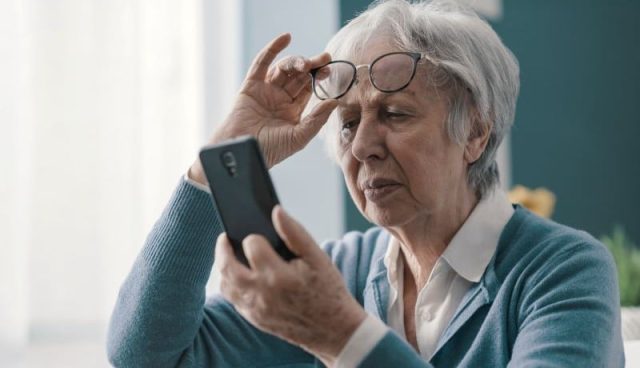Hospital eye service follow-up clinics maintain better diagnostic accuracy for active lesions
By Lori Solomon HealthDay Reporter
MONDAY, April 29, 2024 (HealthDay News) — No home-monitoring vision test has the diagnostic accuracy of hospital eye service follow-up clinics to identify active neovascular age-related macular degeneration (nAMD), according to a study published online April 25 in JAMA Ophthalmology.
Ruth E. Hogg, Ph.D., from Queen’s University Belfast in the United Kingdom, and colleagues evaluated three vision home-monitoring tests for patients to use to detect active nAMD versus diagnosing active nAMD at hospital follow-up during the after-treatment monitoring phase. The analysis included 259 patients (312 eyes; 50 years of age or older) with at least one eye first treated for active nAMD for six months to 42 months before approach.
The researchers found that median home-monitoring testing frequency was three times per month (range, one to four). The estimated area under the receiver operating characteristic curve was <0.6 for all home-monitoring tests (the KeepSight Journal, the MyVisionTrack mobile app, and the MultiBit app). Only the KeepSight Journal summary score was associated with lesion activity (odds ratio, 3.48).
“Results suggest that no home-monitoring vision test evaluated provided satisfactory diagnostic accuracy to identify active nAMD diagnosed in hospital eye service follow-up clinics,” the authors write. “Implementing any of these evaluated tests, with ophthalmologists only reviewing test positives, would mean most active lesions were missed, risking unnecessary sight loss.”
Several authors disclosed financial ties to the pharmaceutical industry.
Editorial (subscription or payment may be required)
Copyright © 2024 HealthDay. All rights reserved.



















